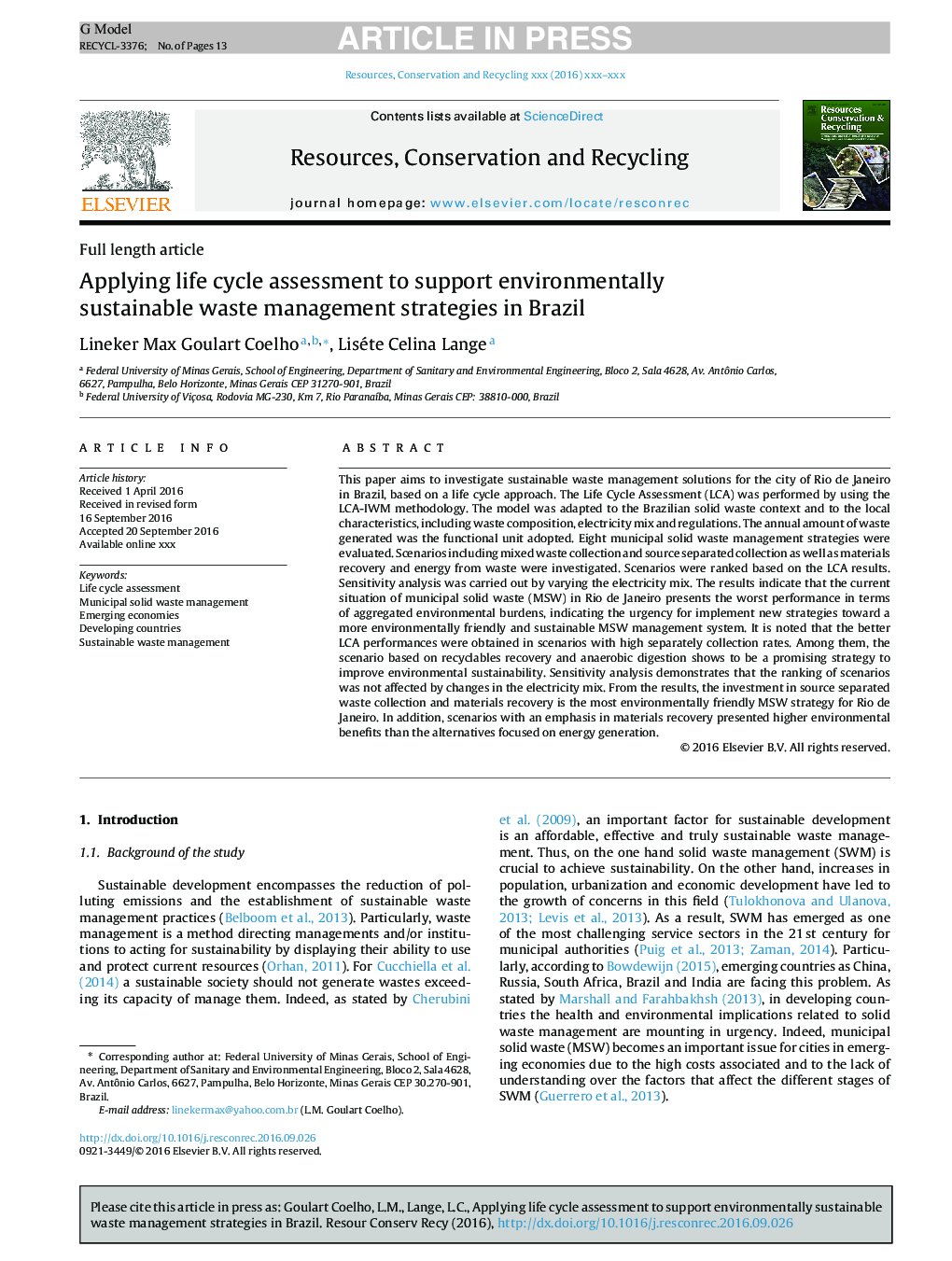| Article ID | Journal | Published Year | Pages | File Type |
|---|---|---|---|---|
| 7494738 | Resources, Conservation and Recycling | 2018 | 13 Pages |
Abstract
This paper aims to investigate sustainable waste management solutions for the city of Rio de Janeiro in Brazil, based on a life cycle approach. The Life Cycle Assessment (LCA) was performed by using the LCA-IWM methodology. The model was adapted to the Brazilian solid waste context and to the local characteristics, including waste composition, electricity mix and regulations. The annual amount of waste generated was the functional unit adopted. Eight municipal solid waste management strategies were evaluated. Scenarios including mixed waste collection and source separated collection as well as materials recovery and energy from waste were investigated. Scenarios were ranked based on the LCA results. Sensitivity analysis was carried out by varying the electricity mix. The results indicate that the current situation of municipal solid waste (MSW) in Rio de Janeiro presents the worst performance in terms of aggregated environmental burdens, indicating the urgency for implement new strategies toward a more environmentally friendly and sustainable MSW management system. It is noted that the better LCA performances were obtained in scenarios with high separately collection rates. Among them, the scenario based on recyclables recovery and anaerobic digestion shows to be a promising strategy to improve environmental sustainability. Sensitivity analysis demonstrates that the ranking of scenarios was not affected by changes in the electricity mix. From the results, the investment in source separated waste collection and materials recovery is the most environmentally friendly MSW strategy for Rio de Janeiro. In addition, scenarios with an emphasis in materials recovery presented higher environmental benefits than the alternatives focused on energy generation.
Keywords
Related Topics
Physical Sciences and Engineering
Energy
Renewable Energy, Sustainability and the Environment
Authors
Lineker Max Goulart Coelho, Liséte Celina Lange,
